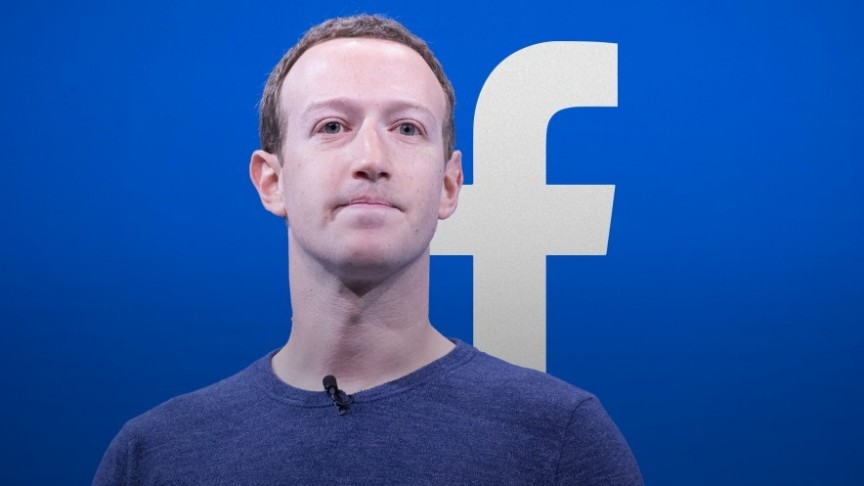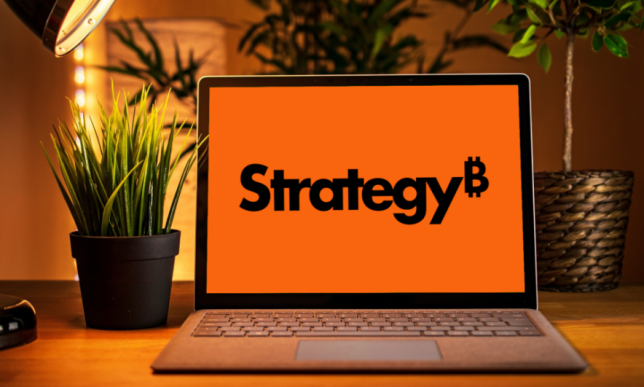
Facebook's Libra: Is It Really All It's Cracked Up to Be?
Jul 3, 2019, 9:43PM by Chris Madill
by Chris Madill
Facebook is one of the world's largest companies, and it has just decided it would like to create its very own version of money. Will it work?
As you have no doubt heard, Facebook has recently announced a detailed overview of their plan to release their own cryptocurrency - The Libra. The project boasts promises of a robust blockchain underpinned by a consortium of node operators consisting of well-trusted Fortune 500 companies and financial mega-corporations (think Visa, Mastercard, and PayPal), as well as a distribution network capable of reaching literally billions. Facebook aims to keep the value of the Libra relatively static (unlike Bitcoin or Ethereum) by backing the digital token with a reserve of the world’s most stable currencies. Of course, the social-media giant also plans to integrate the Libra into its platforms, such as Facebook, Messenger, and Whatsapp, to give users every opportunity to usher in the “future of money” while staying glued firmly to their social media (be still my beating heart).
Admittedly, The Libra’s “crypto-credentials” are impressive, and the whitepaper implies the Libra blockchain will support all sorts of neato-blockchain tricks like smart-contracts, decentralized governance, pseudonymous transactions, and open-source development, placing the Libra alongside the likes of Bitcoin and Ethereum in terms of development potential. Really, it should be expected that Facebook would bring plenty to the table with their new cryptocurrency, after all, the company has a ton of financial and development resources to pull from. Facebook isn’t wrong with their timing either, the world is in dire need of a frictionless method of moving value around the internet, and “currencies” like Bitcoin have not proven themselves as practical or capable vessels as of yet, mostly due to problems with adoption, scalability, and volatility. Some might say, if anyone has the network, development power, and pure financial strength to bring a digital currency to the masses, it’s Facebook.
The Libra does appear to be one of the best-developed projects entering the cryptosphere to date, but it is not without its problems. The company behind the Libra is currently facing antitrust lawsuits of mega-proportions, and privacy issues such as the Cambridge-Analytica scandal demonstrate that Facebook might just be the last corporation users would want to trust with their hard earned money, digital or not. On top of the trust issues facing Facebook, the question of regulation plays heavy on the project's potential, with full regulatory compliance making it difficult for the Libra to compete with other “true” cryptocurrencies that can move more freely across the web without having to appease authorities.
So, does Facebook’s Libra really have what it takes to trump Bitcoin and Ethereum and become the world’s preferred method of transacting digital value?
What Is The Libra, and What Can It Do?
The Libra is a cryptocurrency designed to serve as a high-quality medium of exchange for today’s internet. For those of us who want to draw a very general comparison to an existing cryptocurrency, the Libra is like Tether - It draws intrinsic value from a backing reserve of fiat currencies, it is stable, highly liquid and was created by a potentially insane group of people that the public largely mistrusts, albeit Zuckerberg’s particular flavor of insanity isn’t nearly as nuts as that of crypto-unicorn Brock Pierce.
To be fair, according to Facebook, the Libra is very unlike Tether, as the Libra is going to use a decentralized governance model, relying on a consortium of masternodes called the “Libra Association" to keep the network honest and transparent. What’s more, this association of large multinational corporations will be NOT-FOR-PROFIT - something that seems almost too altruistic to be true, but who am I to doubt Facebook? They have never lied to me before...
At first, the association will consist of an exclusive group of “founding members” - Businesses that must be worth over $1 billion USD and considered leaders in their field in order to join the party - the list of founding members includes the likes of Facebook, PayPal, eBay, Mastercard, Visa, Spotify, Uber, Lyft, and even Bitcoin exchange giant Coinbase. The Libra Association will sail the ship from their headquarters in Geneva, Switzerland, a locale best known for housing liberal cryptocurrency laws, tax havens and until recently, secret private banks. As time moves forward, more members will be allowed to join the Libra Association, adding more diversity to the network and improving decentralization. But unlike a truly decentralized network, not just anyone will be able to run a node on Libra’s network. Libra will require a whopping $10 million USD investment from would-be node operators, which will be staked on the network to provide an incentive for node-operators to maintain the integrity of the network at all costs. A good idea in theory, but it means the Libra will only ever be governed by big-value companies presumably chosen by the founding members, making the Libra a bit too centralized for my crypto-purist palate.
To be such a node, an entity needs to make an investment of at least $10 million in the network through purchasing Libra Investment Tokens… Each $10 million investment entitles one vote in the council, subject to a cap.
/ Libra White Paper
Libra’s value will be “pegged” to a stable value rather than left to fluctuate on the open market like Bitcoin. Instead of pegging the Libra to a particular asset like Gold or the USD, the Libra will peg its value to a basket of stable assets managed by the Libra Association, presumably in a transparent fashion, which is a really good idea if you ask me. If the Libra can maintain a static value and can be easily on-ramped and off-ramped legitimately with fiat currency, there is every reason to believe that the average social media user would jump at the chance to take advantage of Libra’s proposed low fees and frictionless transactions. Couple this with the ease of pressing a big blue-and-white “get money” button in your favorite dopamine-inducing social media app, and you’ve got yourself the world’s newest favorite crypto.
[The Libra] will be backed by a collection of low-volatility assets, such as bank deposits and short-term government securities in currencies from stable and reputable central banks [...] That means anyone with Libra has a high degree of assurance they can convert their digital currency into local fiat currency based on an exchange rate, just like exchanging one currency for another when traveling.
/ Libra White Paper
Facebook has created a subsidiary company called “Calibra”, which is responsible for the development of the first digital wallet on the Libra blockchain. In the future, Calibra will likely develop products and services based on Libra - think loans, bill payments, apps, and other financial services designed to generate revenue and improve the Libra ecosystem. Facebook states that Calibra will in no way be the de facto service provider on the Libra blockchain but is rather the first of many, but time will tell how many competitors will actually be able to compete. Development on the Libra blockchain will be open to the public, and Facebook expects to see a highly competitive ecosystem take shape as more development teams jump on the platform, meaning Calibra will have to uphold its market share through solid development and execution of its services.
The Libra ecosystem will support “most-of-the-best” functions of a good cryptocurrency. Peer-to-peer transactions will be made possible both inside and outside of the custodial-wallets, and offline transactions and coin storage will also be possible. Calibra’s Head, David Marcus tells Bloomberg Technology pseudonymous transactions could be possible, but the fiat on and off ramps will be regulated, as will the custodial wallets, presumably meaning that KYC (Know-Your-Customer) and AML (Anti-Money-Laundering) regulations will apply.
First of all, we’ve decided not to enable crypto-primitives on this blockchain that would enable what we call “shielded transactions”, meaning that if you’re a criminal and you want to transact on a network, this is not going to be your network of choice. This is because accounts are pseudonymous, not anonymous or shielded, and as a result, law enforcement can do their thing, similar to what they are doing with Bitcoin or Ethereum right now.
/ David Marcus, Interview with Bloomberg Technology.
What Do The Critics Say?
The Libra really does reek of a well thought out digital medium of exchange - It’s technically sound, it’s going to sit atop the largest communication network on the planet, and it’s going to solve a pain point that the whole world has been talking about for approximately two decades. Despite this, many crypto-purists, regulators, and champions of privacy remain unconvinced of the Libra’s unbridled future success.
Crypto-purists will, of course, focus first on the Libra’s lack of true decentralization. The decentralized governance model that Facebook is championing isn’t truly decentralized no matter what the whitepaper wants us to believe, because the gate-keeping that’s happening at the door of the Libra Association cherrypicks the entities responsible for governing the network. We already have mediums-of-exchange that are run by mega-powerful groups of people who tell us to trust them - our government controlled national currencies. Ultimately, the consensus among the crypto-crowd is pretty simple: You can’t start out centralized and “become” decentralized.
Regulators are also skeptical about the Libra project, and so they should be. Facebook is ubiquitous in the lives of almost every consumer in the developed world, and the idea that the company could become one of the largest financial service providers on the planet essentially overnight is more than a reason to call for oversight. On June 18th Congresswoman Maxine Waters (D-CA), Chairwoman of the House Financial Services Committee, issued a statement calling for a moratorium on any further advancement of the Libra’s release until Congress and regulators could take action. Citing “ disregard for the protection and careful use of personal data”, “fake accounts from bad actors, including Russian intelligence and transnational traffickers” and “violating fair housing laws on its advertising platform”, Waters called for Facebook executives to come before the Committee to provide testimony on the Libra, as the company has a rich history of doing what it wants without asking permission. As such, a House hearing is scheduled to take place on July 17, and a Senate hearing will be held on July 16th.
Many industry leaders who see the Libra as potentially influencing the digital currency space believe that the Libra will increase US influence in the space, with unknown repercussions. Binance CEO Changpeng 'CZ" Zao recognizes the need for more tech-giants from across the globe to follow suit, to better diversify the digital currency space.
Countries should encourage their tech giants to issue their own #crypto token (hopefully on #BinanceChain, I know, shameless).
Libra will increase US influence in many parts of the world. Imagine if Tencent/WeChat issued one before Facebook, where would that influence reside?
— CZ Binance (@cz_binance) June 19, 2019
In contrast, some are worried that big-tech forays like Facebook's Libra into the digital currency space will muscle out smaller projects with less political influence. as Sunny Aggarwal points out, the possible scenarios are nearly endless, with huge effects on the present players in the crypto-space.
It's like a Mexican standoff between nation-state governments, crypto space, and big tech. This is going to be a big battle of the next decade. We could see a scenario in which big tech crypto and the governments work together to make it a lot harder to built crypto startups. It could be that large public cryptocurrencies and Libra find a natural association between each other. The final result of this complex struggle is unknowable.
/ Researcher and core dev at Tendermint Labs Sunny Aggarwal
We Will Just Have to Wait and See
So, can the Libra dethrone Bitcoin and Ethereum as the world’s answer to digital cash? Maybe. If you think about it, the concept of “digital cash” is still in its most infantile state - we don't even know how the world will eventually digitize value, so it is probably too early to pick a 'winner' - but Facebook’s entrance into the space could push the conversation like never before, and the tech-giant might just end up leading the space if it plays its cards right. Yes, the Libra project is full of potential, and yes, there is no way any current decentralized network could compete with Facebook’s omnipresent network, infrastructure, and political pull as of right now. But, Facebook is a toilet of privacy issues, antitrust lawsuits and annoyingly addictive, irrelevant notifications, so maybe no-one will want to use the Libra, despite Facebook's “most-of-the-best” approach to cryptocurrency, and Facebook's obvious attempts at trying to keep the Libra project away from its direct influence might not be enough. I for one won’t be trading my crypto-holdings in for Facebook stock anytime soon, but that’s not to say I won’t drop $20 in my Libra account to make paying for bus tickets in Laos easier someday either. For those who hate the Libra simply based on their crypto-ideological principles alone, I say "pull your head out". The Libra is the first legitimate cryptocurrency to come out of the private big-tech sector, and it might just define how the world decides to deal with digital cash on a grand scale. You can bet your bottom dollar that someday, we will all be shooting greenbacks, dollarydoos, and loonies around the world on a blockchain based ledger, and someone is going to run a majority share of the network that facilitates the transactions. Whether it is mining farms, crypto-geeks, tech-giants, governments, and banks, or a cherrypicked association of all of these entities, Facebook is showing us right now that the path to an Internet-of-Value is paved with far more than just ideology.
Disclaimer: information contained herein is provided without considering your personal circumstances, therefore should not be construed as financial advice, investment recommendation or an offer of, or solicitation for, any transactions in cryptocurrencies.

















